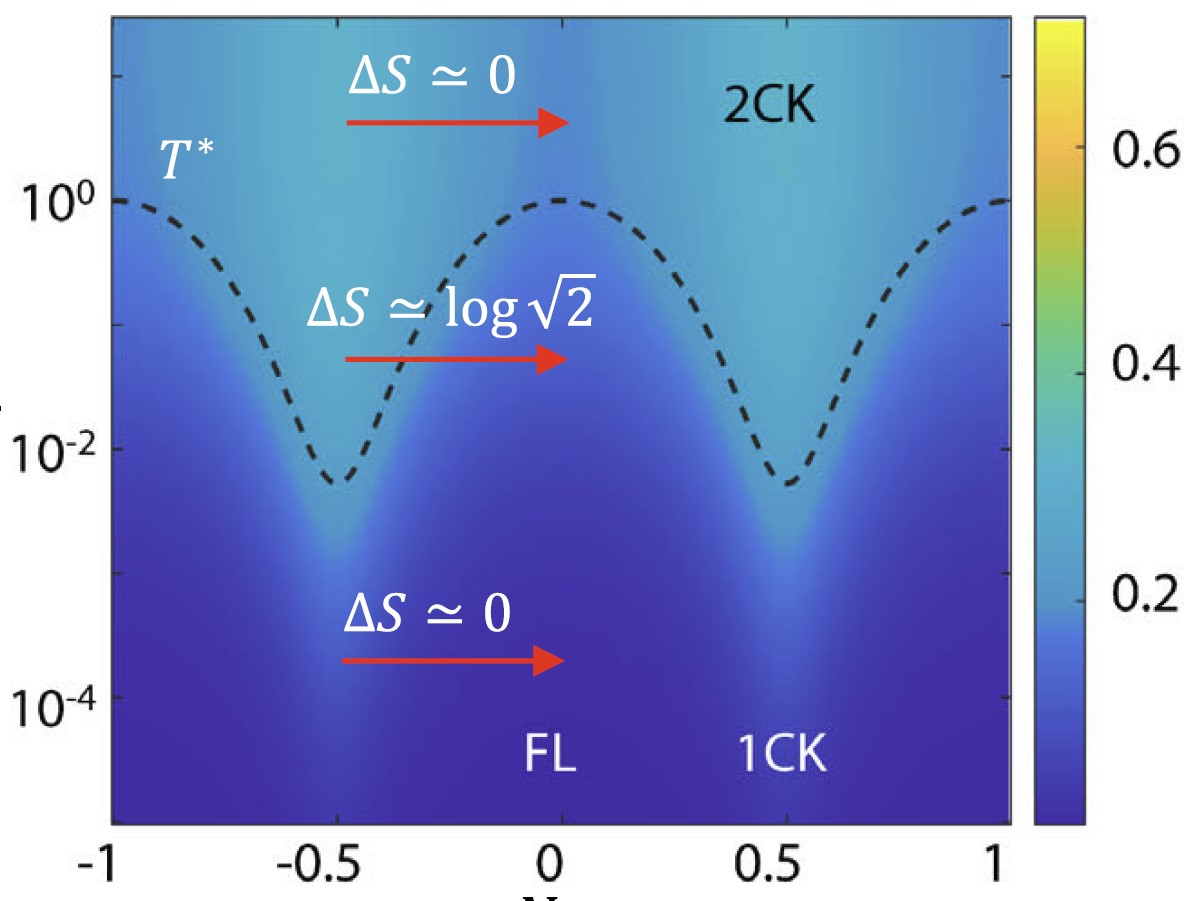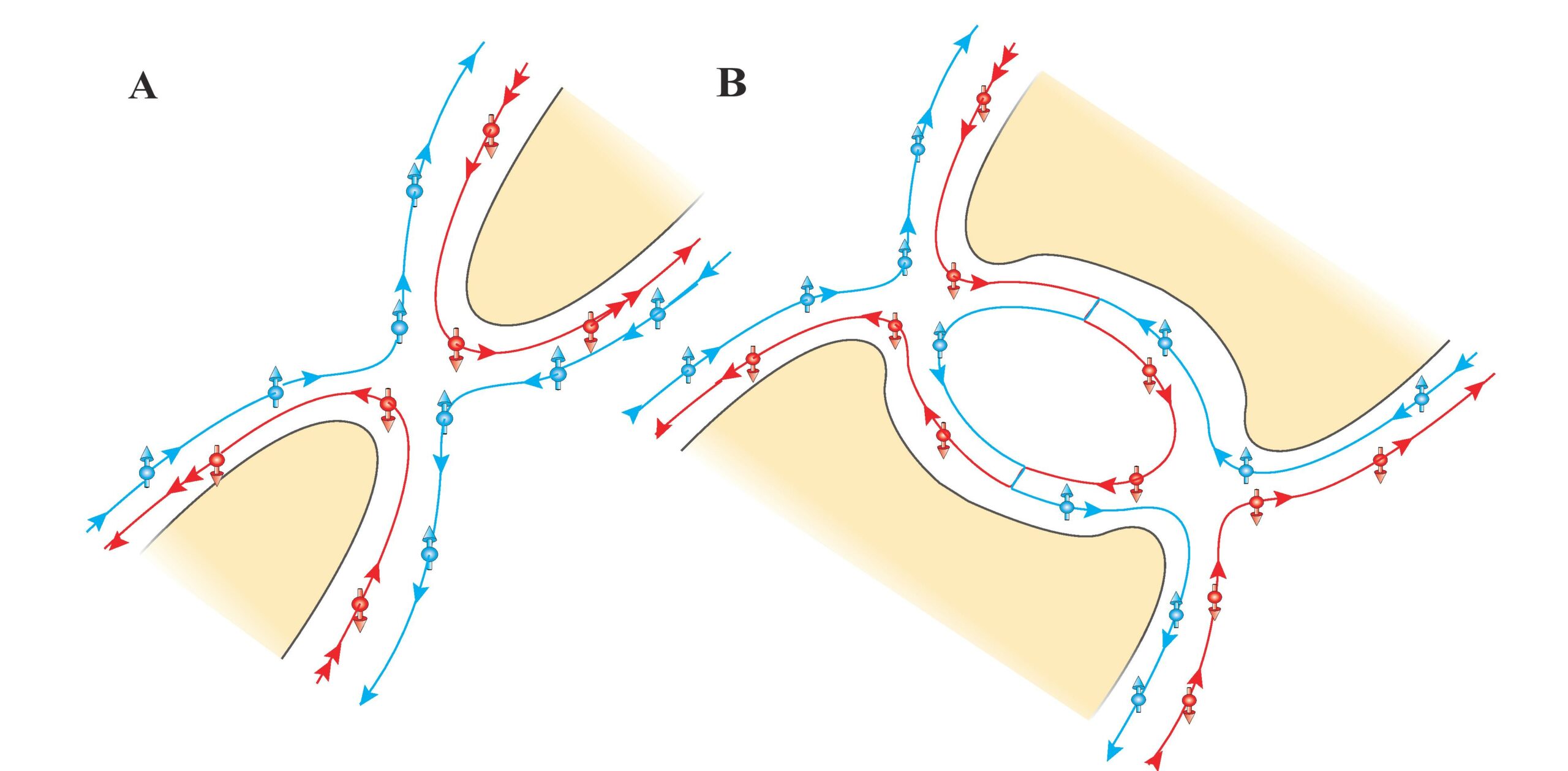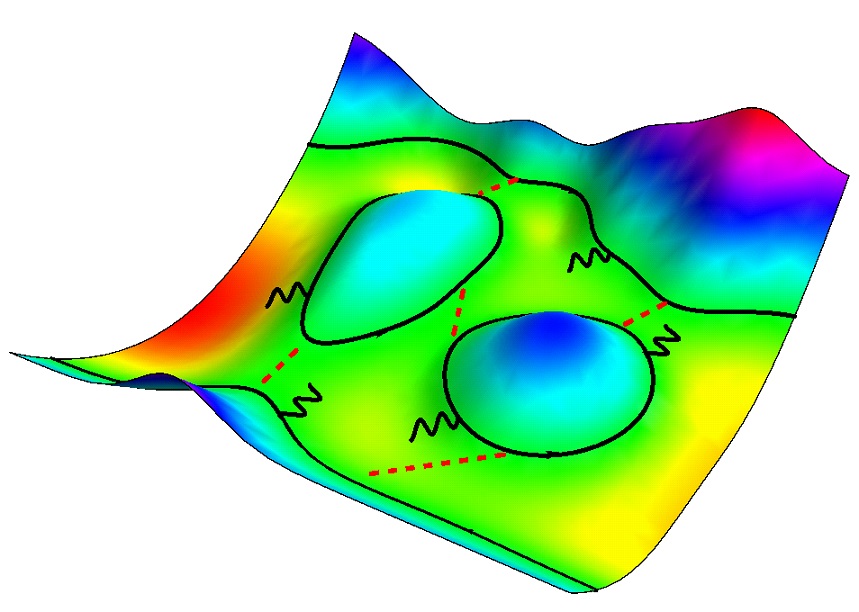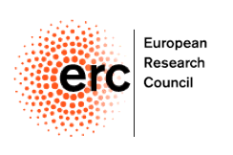Meir's research group
Welcome
The research group of Prof. Yigal Meir at the physics department of Ben Gurion University works on multitude of projects in the general field of theoretical condensed matter physics, including strongly correlated electron systems, mesoscopic system and nanoelectronics, disordered systems, the quantum Hall effect and biological systems.
Great News: Yuval Dahan’s paper in PNAS Nexus on the competition between bacteria and phages has been picked as a press release by both phys.org and the AAAS association.
Research Interests
How to Measure Entropy of Exotic Particles?
Measurements of entropy could be a smoking gun verification of the emergence of exotic particles, such as Majorana fermions, which may serve as building blocks in topological quantum computers. But such measurements remain challenging. In this ERC funded project, in collaboration with several experimental groups, we are developing methods to measure thermodynamic and entanglement entropies.


Edge structure in topological systems
The edge structure in quantum Hall systems and in topological insulators is determined by interplay of edge potential and electron-electron interactions, leading to the possibility of edge reconstruction, and, in the case if topological insulators, to the spontaneous breaking of time-reversal symmetry. The conditions and ramifications of this reconstruction are investigated.
Edge structure in topological systems
The edge structure in quantum Hall systems and in topological insulators is determined by interplay of edge potential and electron-electron interactions, leading to the possibility of edge reconstruction, and, in the case if topological insulators, to the spontaneous breaking of time-reversal symmetry. The conditions and ramifications of this reconstruction are investigated.

Disordered Superconductors
The interplay of disorder and superconductivity has been an active research subject since the early days of BCS theory. In this project we emphasize the interplay of disorder and phase fluctuations, with emphasis on the nature of the superconductor-insulator transition, and the calculation of experimentally measurable quantities.


Transport through Quantum Point Contacts and the 0.7 Anomaly
Conductance through quantum point contacts displays a set of steps in integer units of e2/h, as the point contact opens. An additional shoulder at around 0.7 times that integer value has been attributed to the formation of a quasi-localized state as the point contact opens up. The ramifications of such a quasi-localized state are investigated, with emphasis on may-body effects.
Transport through Quantum Point Contacts and the 0.7 Anomaly
Conductance through quantum point contacts displays a set of steps in integer units of e2/h, as the point contact opens. An additional shoulder at around 0.7 times that integer value has been attributed to the formation of a quasi-localized state as the point contact opens up. The ramifications of such a quasi-localized state are investigated, with emphasis on may-body effects.

Mesoscopic Systems Out of Equilibrium
The effects of non-equilibrium on transport properties of mesoscopic systems, such as quantum point contacts, quantum dots, Aharonov-Bohm rings and their combinations, and its relation to dephasing is of major interest to experiments and to possible applications. In particular, symmetry relation, such as the Onsager relations, are broken out of equilibrium and make these systems particularly challenging.


Chemotaxis in Bacteria
Bacteria can sense gradients of food or temperature and can move accordingly. This chemotaxis network has been investigated by biologists for decades. Simple physical considerations can be applied to this network, to produce quantitative predictions and critical comparison with experiments.
Chemotaxis in Bacteria
Bacteria can sense gradients of food or temperature and can move accordingly. This chemotaxis network has been investigated by biologists for decades. Simple physical considerations can be applied to this network, to produce quantitative predictions and critical comparison with experiments.

The Quantum Hall Insulator
In the quantum Hall regime, theory predicts two possible phase – the quantum Hall phase and the insulator phase. The observed “Quantum Insulator Phase”, with exponentially large longitudinal resistivity, and quantized Hall resistance, has eluded theoretical understanding so far. We are investigating the role of decoherence in that regime, and demonstrate the stabilization of the quantum insulator phase due to rare incoherent scattering events.


Quantropy Synergy Project
Would you like to join our group?
We have available positions for
Joint Postdoc – Ben Gurion University
and Tel Aviv University
Applicants should upload a cover letter, CV and have at least three recommendation letters uploaded to
https://academicjobsonline.org/ajo/jobs/26866
Profs. Yigal Meir (Ben Gurion University) and Eran Sela (Tel Aviv University) invite applications for postdoctoral research positions in theoretical condensed matter physics in the framework of an ERC synergy project. The successful candidates will be appointed at one of the institutes, but will work with both researcgers, although they will also be encouraged to collaborate with other members of the collaborative team, and to perform autonomous research. Research areas of interest to this collaboration include entropy probes of mesoscopic systems, strongly correlated systems, topological materials, layered materials, and measurements of quantum entanglement.
Close collaboration with experimental groups of the ERC synergy collaboration [Klaus Ensslin (ETH), Josh Folk (UBC), Frederic Pierre (Paris)] and elsewhere is anticipated. We expect several positions to become available, each position is expected to extend for a period of two years, with a possibility of renewal for a third year.
